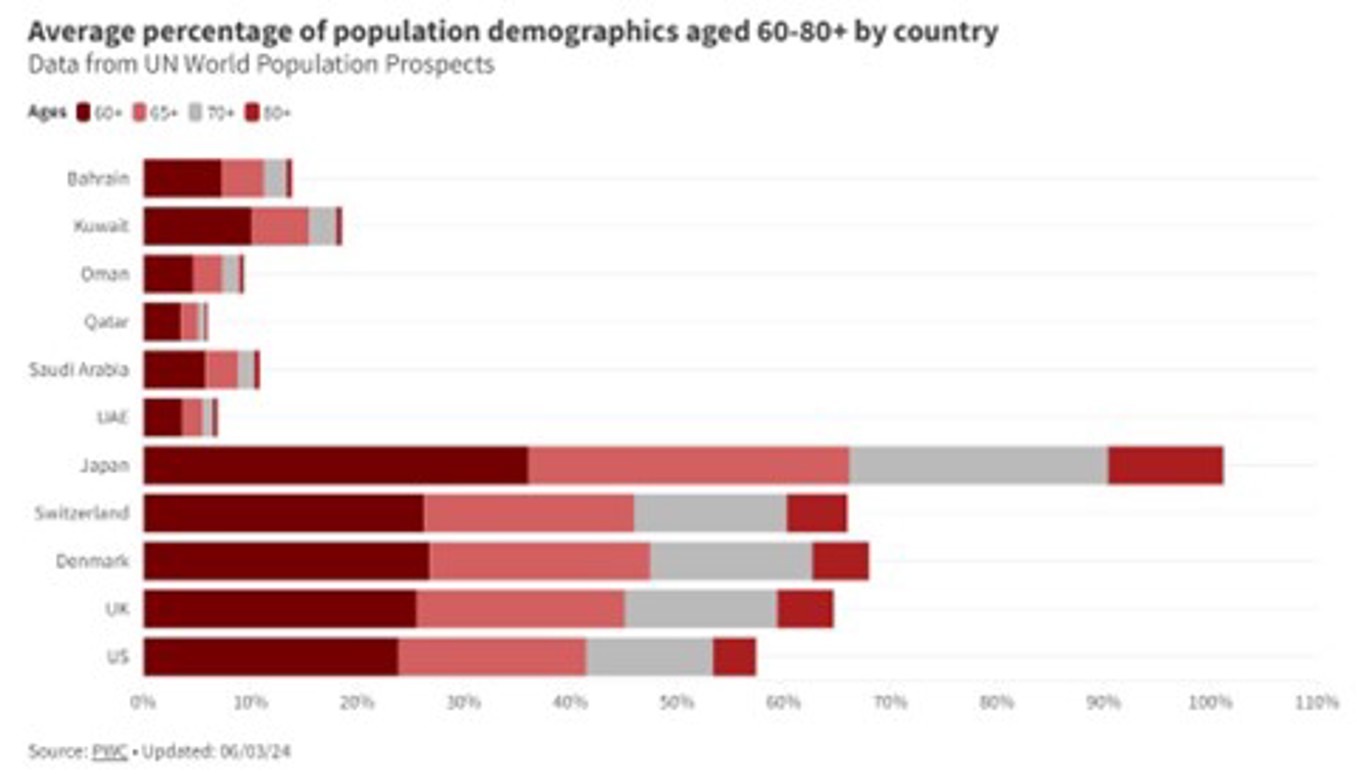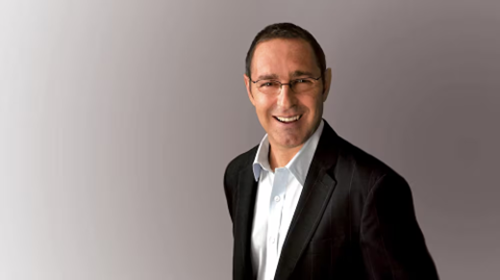"150 years old becoming the norm by the end of the century"
21/03/2024

A new dawn of longevity science has emerged to try and enable more people to live healthier and for longer to ease the pressures on expensive health and social care worldwide.
The Middle East is one region investing heavily in the science of longevity that could make reaching 90 years of age an expected part of life, The National News reports.
If current trends continue, those aged over 50 in the Gulf Cooperation Council - a regional, intergovernmental, political, and economic union comprising Bahrain, Kuwait, Oman, Qatar, Saudi Arabia, and the United Arab Emirates - will comprise 18.5% of the population by 2025, up from 14.2% in 2020.
In Australia, between now and 2050, the number of people 65 to 84 year is expected to more than double, with people aged 85 and over expected to more than quadruple, from 0.4 million people today to 1.8 million in 2050.
According to the Office of National Statistics in Britain, a third of babies born in 2013 are predicted to reach the age of 100, while the US Census Bureau predicts the number of people aged over 85 will triple by 2060.
“When we say longevity, we very often don't really mean what the word implies – living longer,” said Dr Zemer Wang, medical director at DP World’s Aviv Clinics in Dubai.
“What we actually want is to live healthier, for longer."
The fact the term longevity is being used instead of lifespan is important. Lifespan is the age at which people are expected to die but longevity considers how many years people live well, without the constraints of ill health.
With the advances in healthcare, living to be 120 years old has now become an imaginable prospect, said Dr Frank Lipman (pictured), who believes ‘biohacking’ that utilises biology, genetics, neuroscience and nutrition can enhance physical and mental performance well into old age.
“This type of longevity is becoming increasingly widespread,” said Dr Lipman, a functional medicine therapist at the Wellth Clinic in Jumeirah.
“Certainly, developments in medical science and technology promise a world in which people can live longer, healthier lives.
“Sensor-based wearables or implantable technology will enable health data for real-time analysis, assisting clinicians in keeping track of their patient's medical conditions, paving the way for a world in which people can be alerted to signs of illness or disease before underlying symptoms appear.
“That is where the real challenge lies: can we create a therapy that can improve the quality of life in our old age?"
“Rapid developments in stem cells suggest humanity is fully capable of surviving and even working well beyond present expectations, with 150 years old becoming the norm by the end of the century.”














